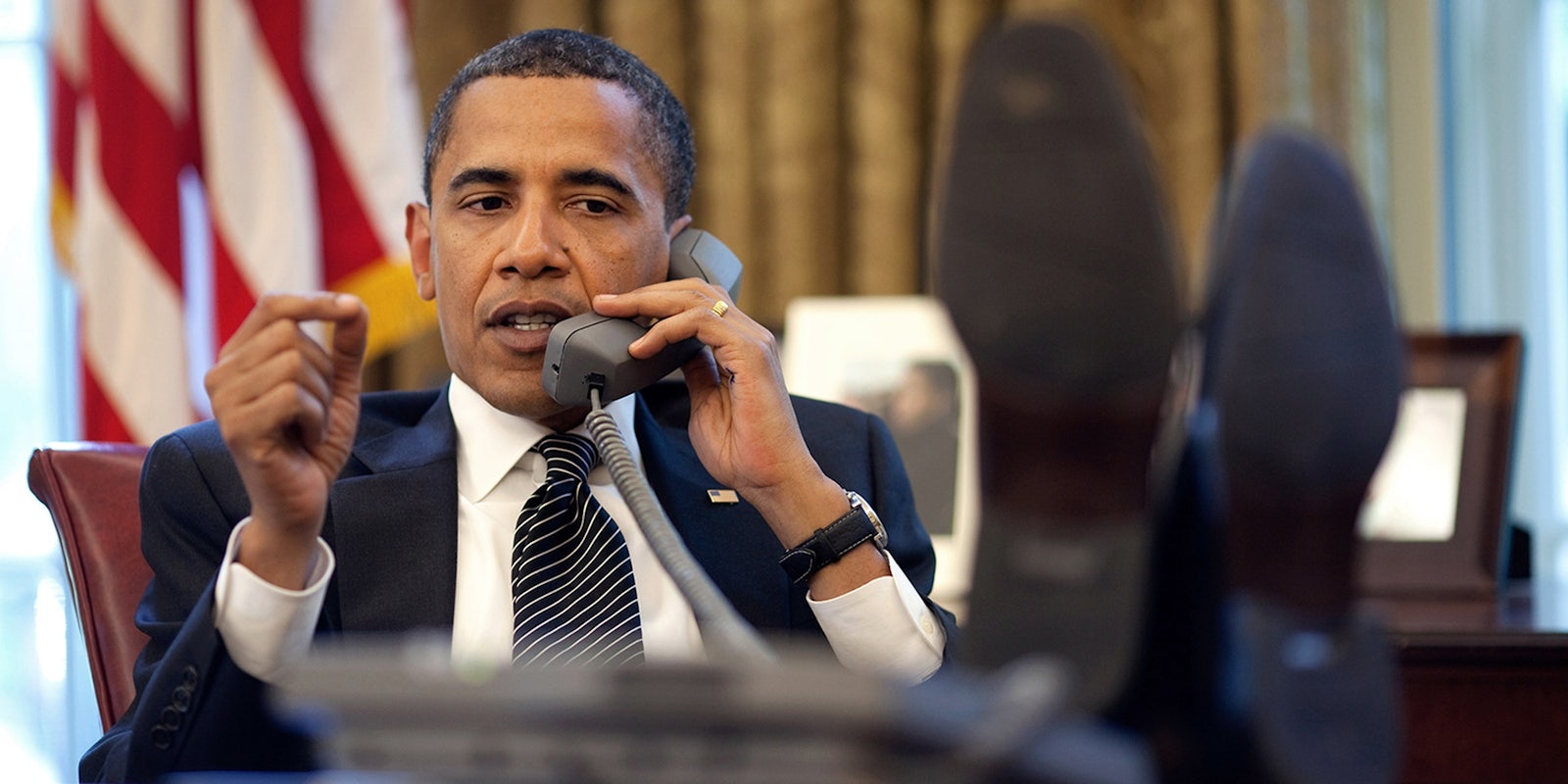Iran and five Western nations led by the United States on Tuesday morning announced the completion of a landmark nuclear deal after more than 18 months of tumultuous negotiations.
The deal lifts international sanctions on the Islamic Republic in exchange for strict limits on the country’s nuclear ability for the next 15 years.
“This deal demonstrates that American diplomacy can bring about real and meaningful change—change that makes our country, and the world, safer and more secure,” President Obama said in a White House address announcing the deal that was carried live on Iranian state television.
In an attempt to preempt conservative criticism, Obama took pains to stress that the deal was “built on verification.”
“We have stopped the spread of nuclear weapons in this region,” Obama said.
Congress now has the opportunity to review the deal and vote to block it House Speaker John Boehner (R-Ohio) criticized the deal, saying it was “likely to fuel a nuclear arms race around the world.”
“The House of Representatives will review every detail of this agreement very closely,” Boehner said in a statement, “but I won’t support any agreement that jeopardizes the safety of the American people and all who value freedom and security.”
In his speech, Obama warned lawmakers against voting to disapprove of the agreement, saying he would “veto any legislation that prevents the successful implementation of this deal.”
Under the terms of the agreement, Iran will reduce its stockpile of low-enriched uranium by 98 percent and shut down two-thirds of the centrifuges at Natanz, its primary enrichment center and the target of subterfuge over recent years.
Natanz will still have 5,060 running centrifuges, but negotiators say the shutdown will add a full year to the time required for Iran to make a nuclear bomb if it broke the deal and proceeded with those plans.
In addition to the United States and Iran, the other members of the “P5+1” negotiating powers were the United Kingdom, China, France, Germany, Russia, and the European Union.
Hassan Rouhani, the relatively moderate Iranian president, won election in 2013 with a mandate to lift crushing Western sanctions through diplomacy.
Iran says it will meet the agreement’s terms within a matter of weeks in order to get sanctions lifted as quickly as possible.
Oil prices quickly dropped in response to the news of the deal. Iran will now be able to sell oil on the international market as a result of the agreement.
The agreement reached on Tuesday include an end to a nine-year arms embargo on Iran. This particular embargo will end within five to eight years, or perhaps sooner, as long as the International Atomic Energy Agency (IAEA) concludes that Iran’s nuclear program is peaceful.
If a majority of the P5 Western powers judge Iran to be cheating on the deal, negotiators said, sanctions will “snap back” into place.
“This is a great day for world peace,” an Iranian official told Western journalists.
Israeli Prime Minister Benjamin Netanyahu called the deal a “historic mistake” and said the U.S. made “far-reaching concessions” that would give Iran “hundreds of billions of dollars with which it can fuel its terror machine and its expansion and aggression throughout the Middle East and across the globe.”
The leaders of Israel, Saudi Arabia, and other Middle Eastern nations have repeatedly criticized a deal, saying it would empower Iran to further menace the region. Many American lawmakers have joined that chorus as well, promising to closely review the deal and block it if necessary.
Read the full text of the deal below:
Update 7:38am CT, July 14: Added full text of the Iran nuclear deal.
Update 7:52am CT, July 14: Added statements from President Obama and Speaker Boehner.
Correction: Iran made the deal with five Western nations.
Photo via The White House/Flickr (PD)


